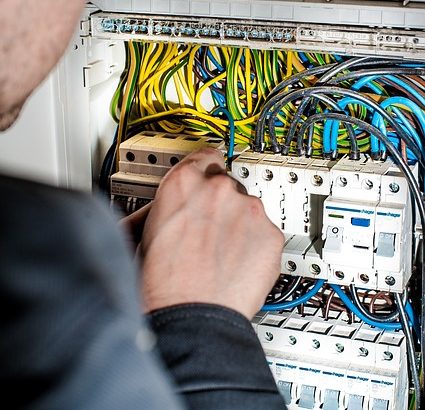What is The Difference Between an Electrician and an Electrical Contractor?
Although the terms electrician and electrical contractor have a similar ring on it, they have different meanings. There are significant differences between both professions that can affect the quality of work and the safety of the receiving end. By simple terms, one term refers to the person who is rightfully trained to execute electrical jobs while the other is the person or business that can employ electrical workers and holds the required insurances. Both the electrician and electrical contractor are involved in dealing with electrical components but they approach it from diverse means. Most often, the terms electrician and electrical contractor are used interchangeably.
What is an electrician?
Electrician is the individual responsible for the installation of wires and other components to provide electrical powers to homes, building and other institutions. They completed four years of apprenticeship where they learn inside the classroom and gain practical experience through on-the-job-trainings under strict supervision and sufficient insurance coverage policy. Most states require that electricians should be licensed but they will only undergo one examination to pass. Basically, electricians are allowed to handle small to medium sized jobs. These include wiring, installation of underground conduits, material dealings, fire safety, troubleshooting and maintenance. However, although electricians have the required licenses, they are not required to carry out any electrical jobs on their own and charge clients. Since electrical jobs are quite risky and dangerous, electricians who work on their behalf will face severe penalties. Some states require certified electricians to renew their licenses every five years. It is important that electricians can exhibit a specific number of hours work and continuous education in the related field to make sure that their knowledge and skills are up to date and certain progress are well understood.
What is an electrical contractor?
Electrical contractor, on the other hand, is the individual or business that is licensed to involve in contracting businesses and is ensured to perform electrical services including installation of ceiling fans, air condition units or power point, installation or modification of switchboard and safety switch, installation and alteration of wires or fixed appliances in a building, repair of washing machine and other same-level appliances, and maintenance of processing plants. Since they have licenses, they are allowed to hire more than a few certified electricians to work on big jobs. Electrical contractors must obtain contractor’s license. To acquire such license, the applicant should have four years’ work experience in the relevant field. Undertaking apprenticeship program, passing certain examinations, lodging a cash bond, and providing working capital are also vital requirements in obtaining contractor’s license. Fingerprinting, background checking and providing substantial worker’s compensation insurance are also required. Electrical contractors are given certificates and cards once their licenses are already granted. This makes it easy for clients in hiring contractors. They should ask for certificates or cards and see to it that it is still current at any license boards. The important features of the contractor’s certificates are license number and name of business. In some states, active licenses are required to be renewed every year and applicants should exhibit that they have undergone continuous education in the related field to keep up with latest developments and most recent innovations.
Electrical contractors are also electricians.
Electrical contractors are also electricians. However, they undergo additional training to obtain contractor’s license. They should hold appropriate insurances that can protect employees, homeowners, business proprietors from any insurance liabilities. Electrical jobs done under electrical contractors are submitted to the state’s Electrical Inspector. This results to their works being inspected on a regular basis to guarantee that they comply with safety regulations. Electrical contractors absolutely know the rules in this field. Residential and commercial electrical projects vary in so many ways. It is important that these jobs are performed to specific code requirements to avoid risks of injury, fire, and death aside from the risks of fines and penalties.
The significant distinction between these two careers lies simply in the fact that licensed electricians are not allowed to perform work for the general public except if they are employed by electrical contractors. In layman’s term, electricians are employed by electrical contractors to do electrical jobs. Reversely, electrical contractors are licensed to hire electricians to cater the needs of the clients' electrical jobs. Electricians and electrical contractors both hold licenses however only electrical contractors hold the required insurances to safely operate a business. Electricians are not allowed to setup personal business without gaining a contractor’s license. They can only work for a licensed electrical contractor.
Electricians that accept electrical jobs without direction from electrical contractors are commonly referred as back-yarders. Their jobs are never inspected by the regulators and are not ensured to be safely and properly done. These back-yarders also do not have the required insurance that can cover liabilities. This means that if something goes wrong, you could be left hanging. Insurance companies will have difficulty settling damages done by unlicensed electricians.
The next time you need someone to do your electrical jobs, make sure that you hire an electrical contractor or an electrician that is employed by a licensed Electrical Contractor. This crucial decision will ensure everybody’s safety and will put your mind at peace because they definitely provide a complete work with high and safe standard.
I am a licensed electrical contractor. Check out our services. Call me on 0403 026 531.


[…] Read this article What is The Difference Between an Electrician and an Electrical Contractor? […]